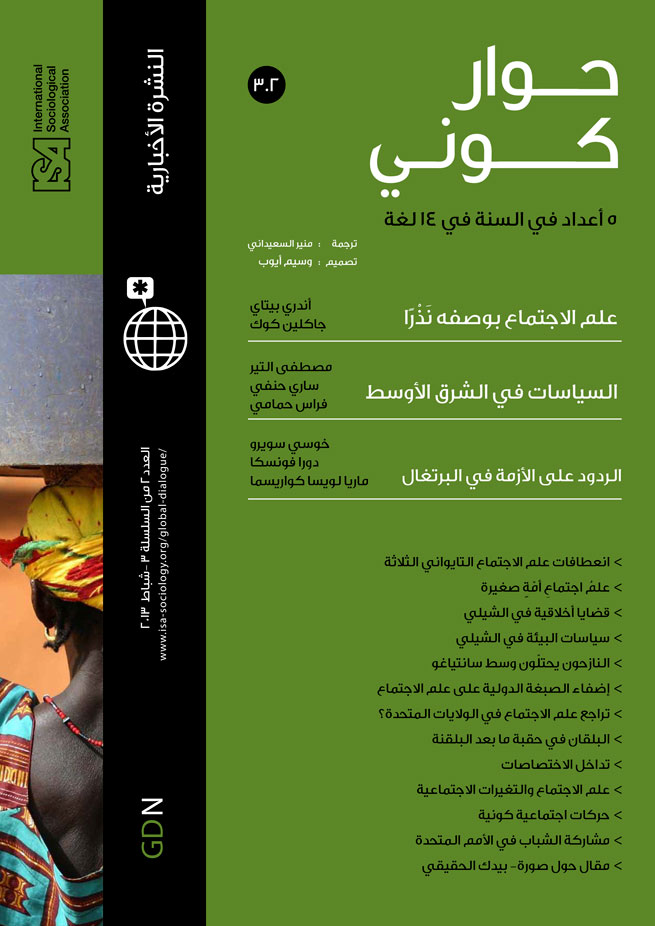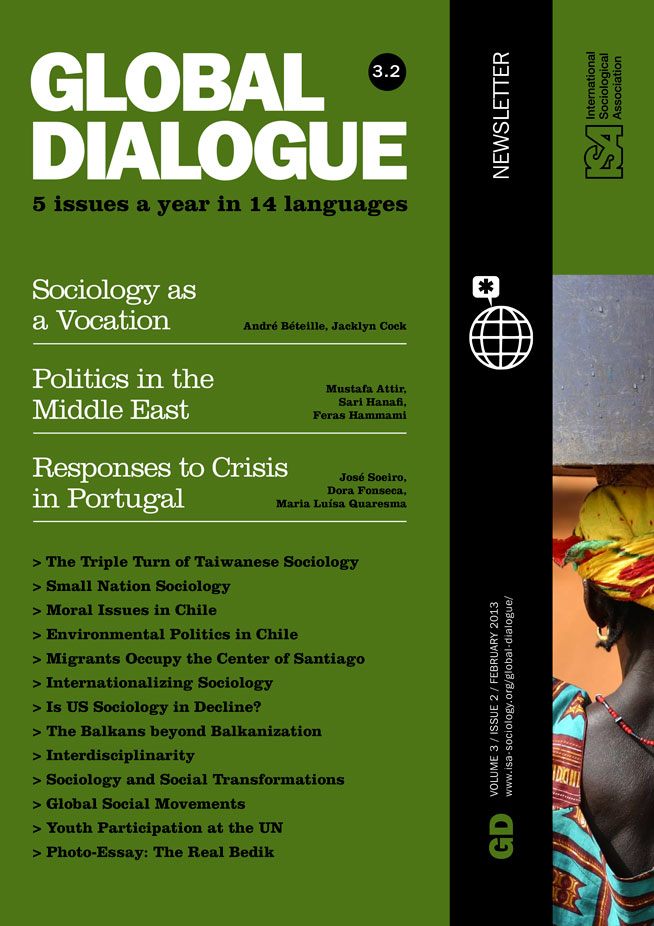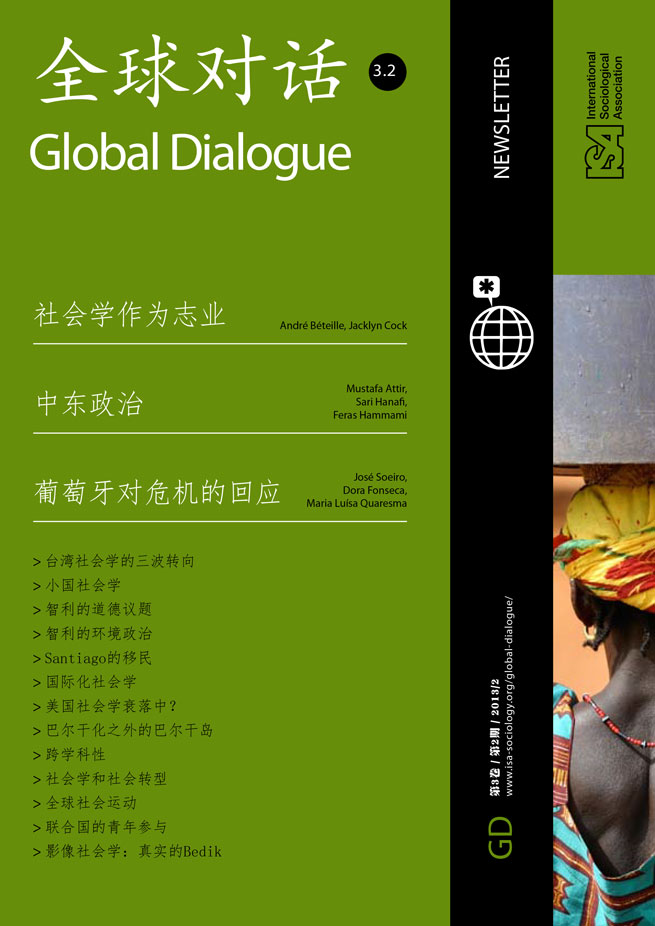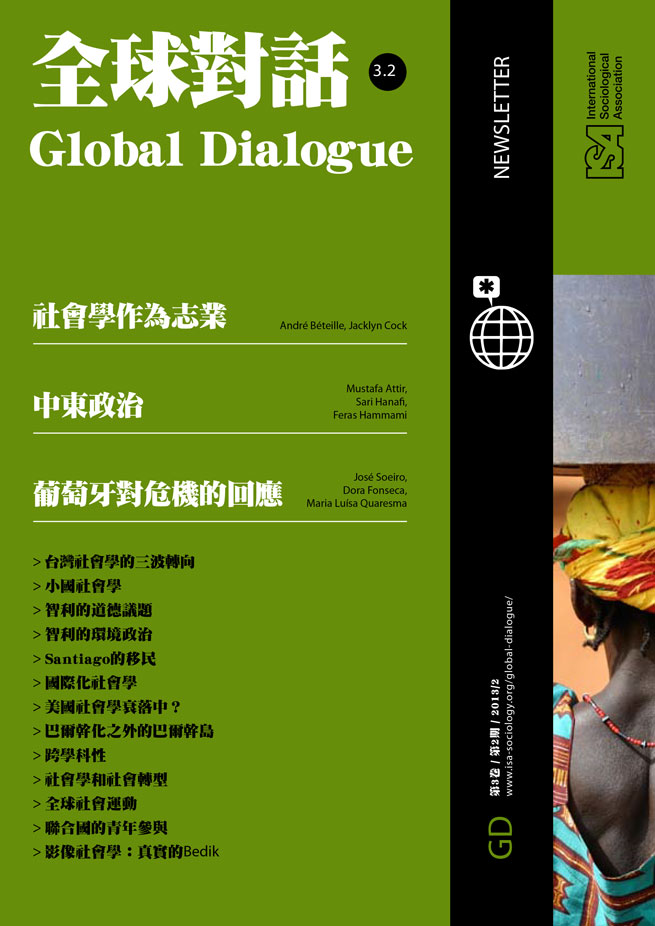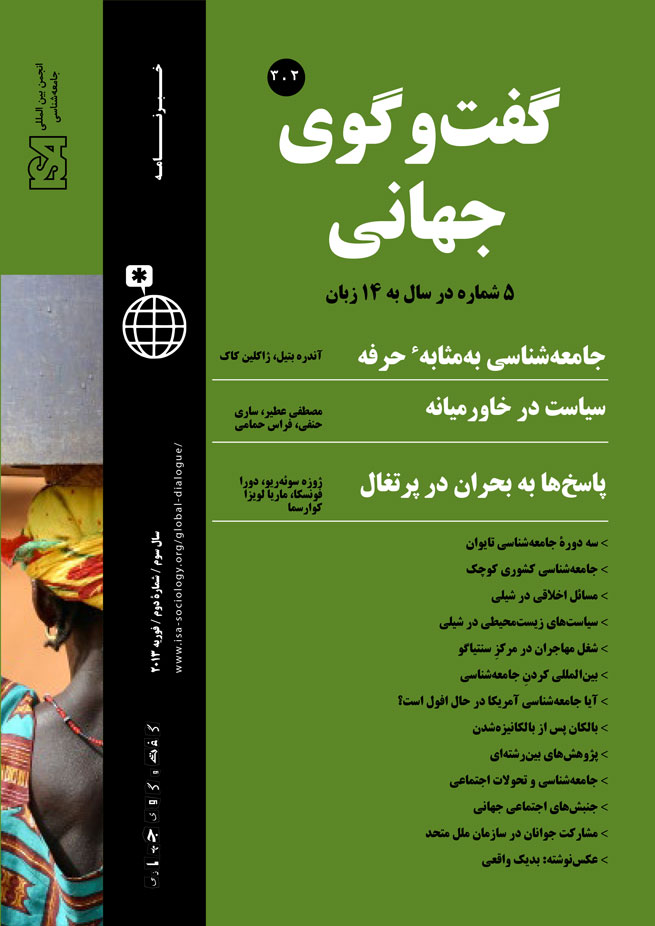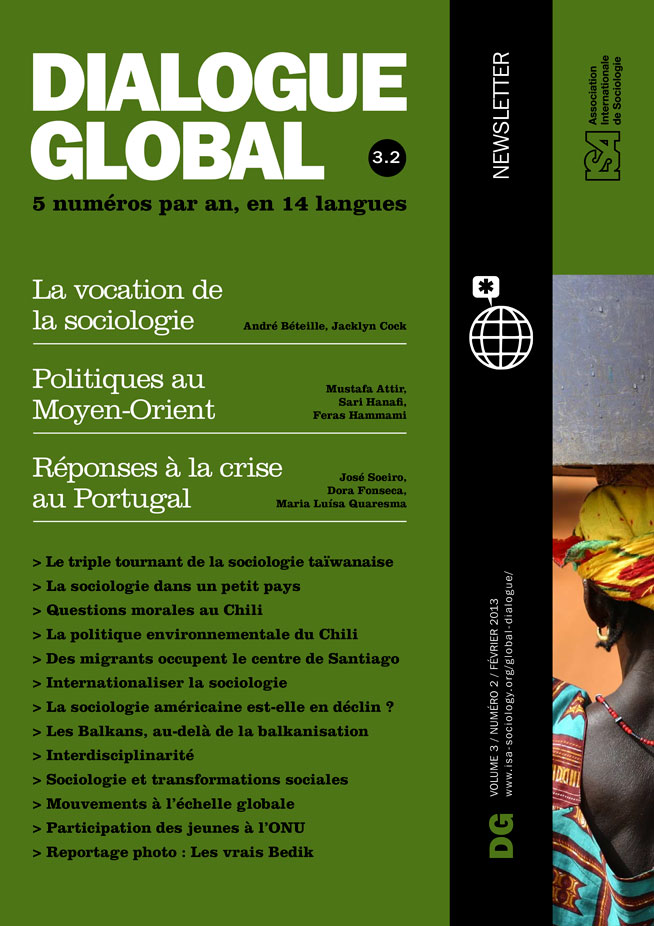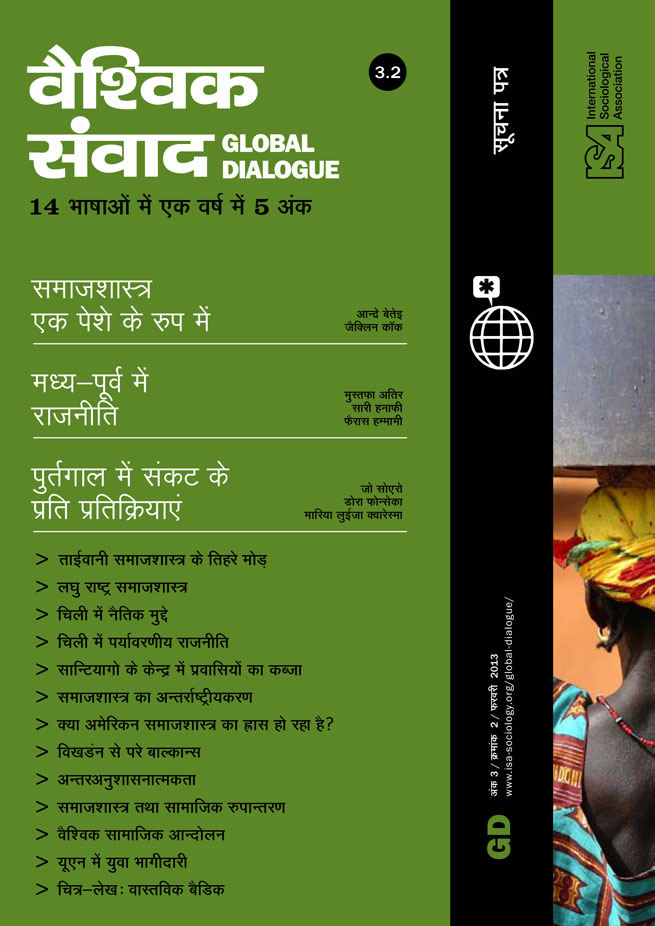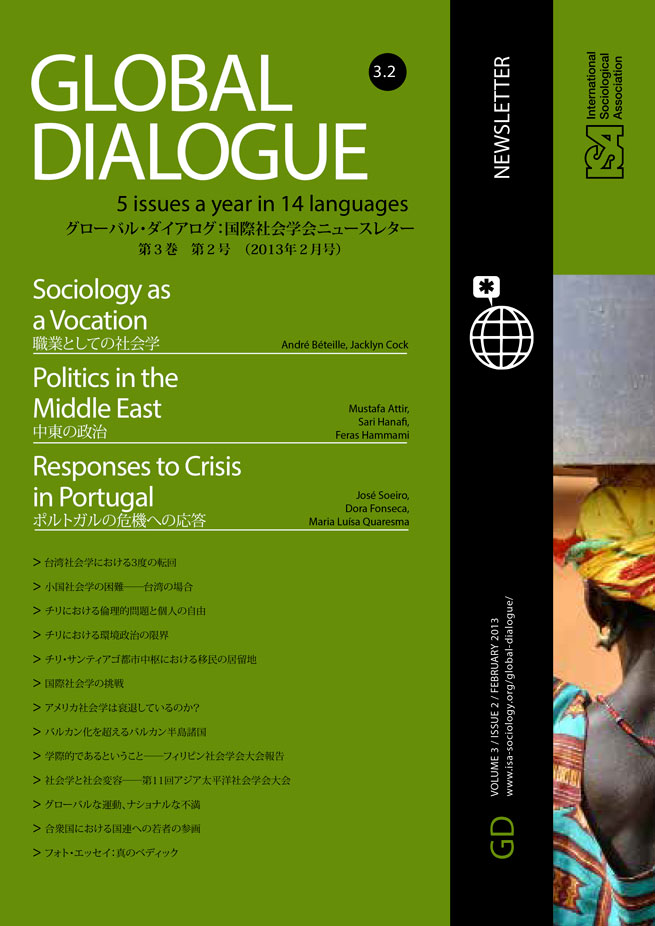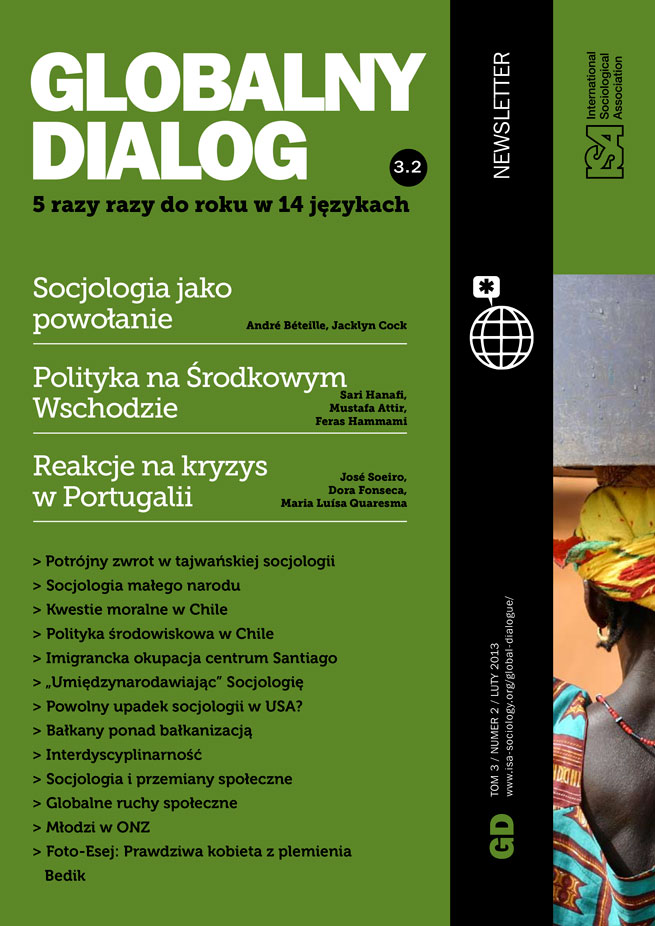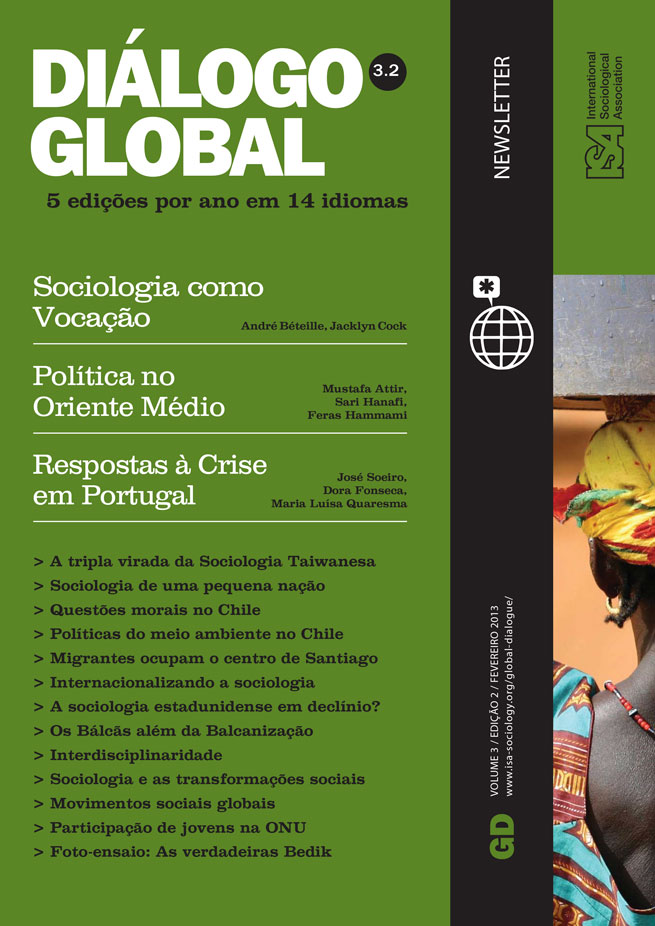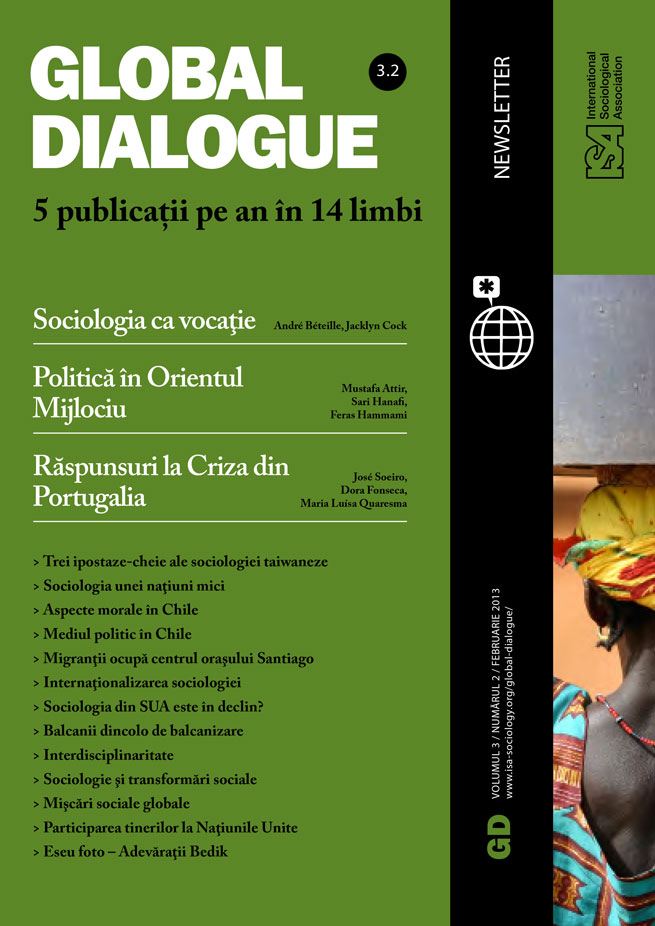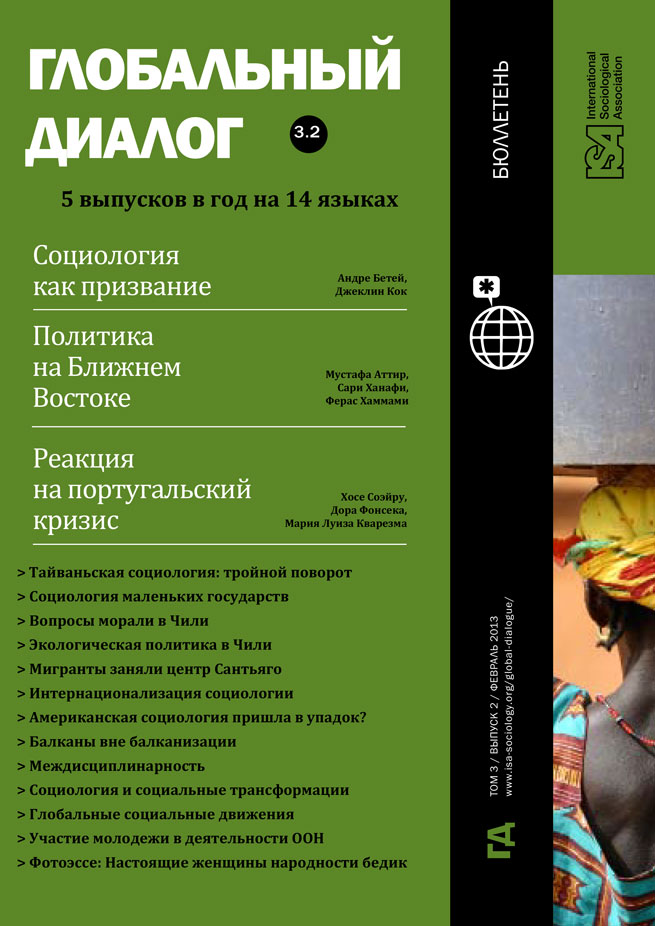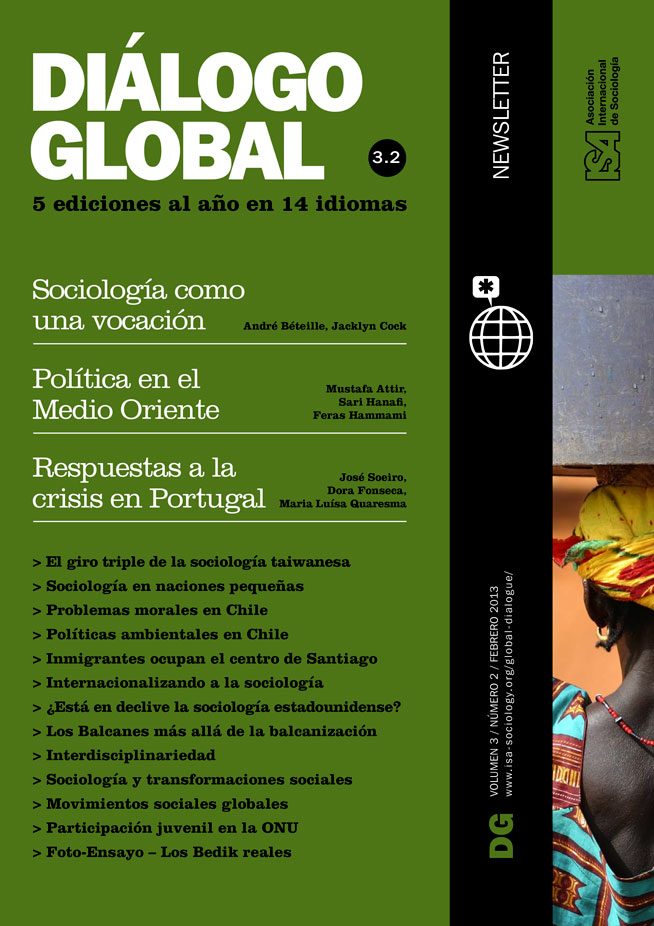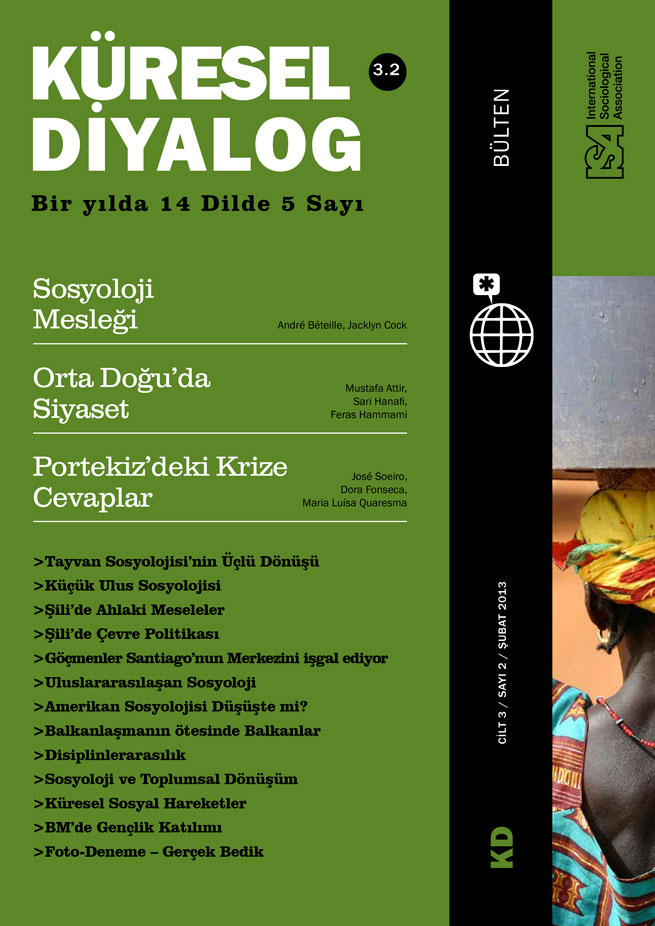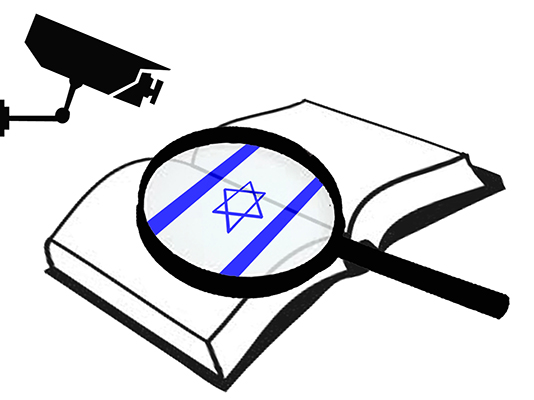Read more about Politics in the Middle East
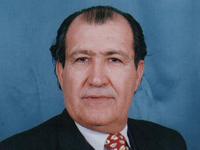
Libyan Sociology during and after the Dictatorship: An Interview with Mustafa Attir
by Sari Hanafi and Mustafa O. Attir
February 15, 2013
Staff members of several Israeli universities recently signed a petition protesting a proposal made by the Subcommittee for Quality Assessment of the Israeli Council for Higher Education (CHE) to bar the Department of Politics and Government at Ben-Gurion University (BGU) from admitting students for the academic year, 2013-14. Professor Gilad Haran at the Weizmann Institute of Science initiated this petition arguing, “academic freedom in Israel’s higher education system is in severe danger.” While the petition was signed in September, the Israeli state has been censoring freedom of expression in its universities since the establishment of Israel as a Jewish State in 1948. This date also marks the Nakba (Catastrophe) for the Palestinians, the loss of historic Palestine, ethnic cleansing, displacements, death of families and friends, loss of properties, and massacres perpetrated by Zionist militants (later the State of Israel) before and after 1948. More than 27 Israeli universities have consistently supported the apartheid policy of Israel through direct participation in both political and military activities (Hever, 2009).
Stifling of Political Dissent in Israeli Universities
The right-wing government of Benjamin Netanyahu has sanctioned a series of repressive measures to deter domestic criticism from human rights groups, media and judiciary (Cook, 2012: 22). Jewish students and faculty members police the academic environment, acting as watchdog over the courses of “dissident” professors. To avoid public vilification, job loss, imprisonment, or even death, staff members delimit the information that might provoke the authorities. Professor Ariella Azoulay of Bar-Ilan University was denied tenure because of her political associations. When Professor Neve Gordon at BGU announced his support for the boycott of Israeli universities in 2009 the group Im Tirtzu called upon the university to dismiss the professor and “put an end to the anti-Zionist tilt” (Haaretz, 9/30/2012). The Minister of Education Gideon Saar also criticized the Department of Politics and Government at BGU for its “post-Zionist” bias. Professor Ilan Pappe who supports the academic boycott of Israel was himself boycotted in Haifa University. After he had received several death threats and had been condemned by the Knesset, he moved his work to the University of Exeter in 2008.
Nizar Hassan, director of several award-winning films, was condemned by the Knesset Education Committee for criticizing a Jewish student who arrived to class at Sapir College in the Negev wearing military uniform (Cook, 2008). There was no such condemnation of a Jewish lecturer at the same college who asked a female Bedouin to take off her veil when she came to class. Since the eruption of the second Intifada in 2000, the Israeli police and secret services have intensified the arrest and interrogation of Israeli-Palestinian students in Israeli universities. Yusef, a student of the University of Ben-Gurion, lost his life due to his political association with an Arab Student Committee on campus (Gordon, 2006: 194-5).
Aiding the Military Occupation
Israeli universities support military research and training through close cooperation with the weapon manufacturing companies Elbit and RAFAEL. These companies are best known for providing the monitoring system for the Israeli Apartheid Wall, a 760-kilometer long concrete barrier that juts into the occupied West Bank, enabling Israel to annex more Palestinian land. Technion University is financed by Elbit to advance robotic weapon systems such as the aerial drone and unmanned combat vehicle technology that aided the Israeli attack on Gaza in 2008-2009. It had also provided a special assistance to students who served in the attack. According to Hever (2009) Haim Russo, manager of the El-Op branch of Elbit had been appointed to the Technion’s executive board, and the President of Elbit Systems has been granted an honorary doctorate.
Several Israeli universities are built on the ruins of Palestinian villages and towns that were destroyed in 1948 and 1967. Tel-Aviv University has never acknowledged the fact that it was built over the ruins of the destroyed Palestinian village of Sheikh Muwanis, whose residents were displaced and exiled. Other universities, such as the Ariel University Center of Samaria, are built in illegal settlements under international law in the West Bank. Although Ariel College and its staff have been boycotted both in Israel and overseas, the Minister of Education praised the decision to grant the institution full university status.
These examples show that closing down the Department of Government and Politics at BGU is not without political motivation. As stated by the president of BGU Professor Rivka Carmi in her letter to the Presidents of Israel’s research universities “there are many internal and external threats against Israeli academic institutions […] This is not Ben-Gurion University’s private battle, but a struggle of all Israeli academic institutions […] Ratification of the current decision by the CHE is like hoisting a black flag over the independence of Israeli academics.” Professor Tanya Reinhart of Tel-Aviv University says that “never in its history did the Board of any Israeli university pass a resolution protesting the frequent closure of Palestinian universities. […] in extreme situations of violations of human rights and moral principles, the academia refuses to criticize and […] collaborates with the oppressing system” (Reinhart, 2004). The same is true of Israel’s supporters abroad; not one of the 450 presidents of American colleges, who denounced the boycott call, protested against the destruction of the Islamic University in Gaza (Gordon and Halper, 2008).
In response to the violation of human rights within and outside Israeli universities, concerned academics worldwide have demanded that their universities implement the ethical policy enshrined in their constitution. Among others, the British Committee for the Universities of Palestine, the Swedish “Action Group at KTH for the Boycott of Israel,” the staff association of McGill University, and the Student Union of Berkeley have demanded that their universities break relations with universities that are complicit in Israel’s apartheid policy. The University of Johannesburg was the first university to stop its cooperation with the Ben-Gurion University. At the European level, 260 academics from twenty different countries urged the European Commission to exclude from EU programs Israeli companies involved in the abuse of Palestinian human rights.
The boycott campaign is often seen to contravene free dialogue and the achievement of academic freedom. However, the past 70 years of dialogue with Israeli authorities have neither promoted the “peace” process nor obliged Israel to comply with the UN resolutions or international law. Examples from South Africa during the apartheid regime show that international calls for academic freedom can be effective. Such calls might uncover the apartheid policy of the Israeli government, challenge the surveillance system that controls freedom of expression in universities, and rescue Israeli universities from their current political and, indeed, ethical crisis.
References
Cook, J. (2012) “The full story behind the war against free speech in Israel’s universities.” The Electronic Intifada. Accessed on 10/27/2012 from http://electronicintifada.net/content/full-story-behind-war-against-free-speech-israels-universities/11783
Cook, J. (2008) “Academic Freedom? Not for Arabs in Israel.” CounterPunch. Accessed on 8/11//2012 from http://www.counterpunch.org/.../academic-freedom-not-for-arabs-in-israel/
Eqeiq, A. (2012) “Epilogue.” Omrim Yeshna Eretz – Hekayat Balad (Once upon a Land) / A Tour Guide. Sedek. Zochrot: Tel-Aviv. Gordon, N. and Halper, J. (2008) “Where’s the academic outrage over the bombing of a university in Gaza?” CounterPunch from http://www.counterpunch.org/2008/12/31/where-s-the-academic-outrage-over-the-bombing-of-a-university-in-gaza/
Hever, S. (2009) “The Economy of the Occupation – A Socioeconomic Bulletin.” Jerusalem: The Alternative Information Center. Accessed on 2010-02-05 from http://usacbi.files.wordpress.com/2009/11/economy_of_the_occupation_23-24.pdf
Reinhart, T. (2004) “Academic Boycott: In Support of Paris VI.” The Electronic Intifada.
Feras Hammami, Royal Institute of Technology (KTH), Stockholm, Sweden
This issue is not available yet in this language.
Request to be notified when the issue is available in your language.
If you prefer, you can access previous issues available in your language:
